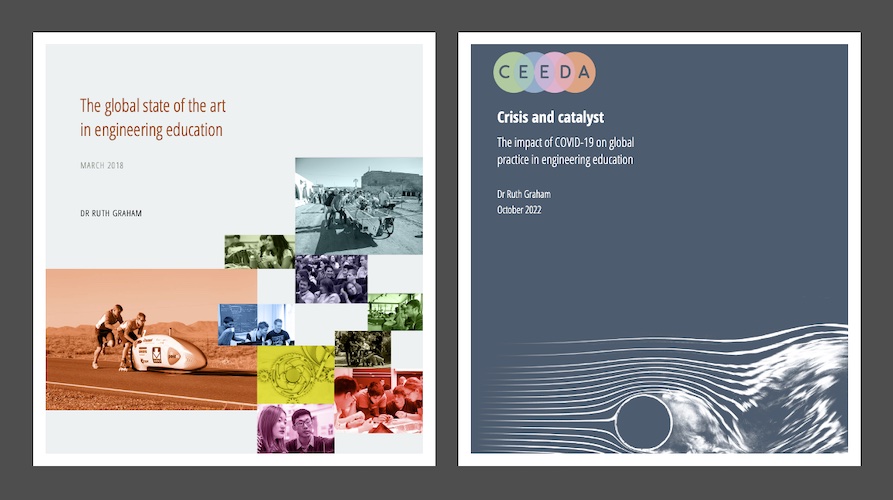Exploring the future direction for engineering education
Seminar 2 (2) with Dr Ruth Graham visiting KTH 23-24 August 2023

In the ever-evolving landscape of education, the profound impact of crises has often served as a catalyst for change. The seminar encompasses a comprehensive analysis of key themes extracted from two reports. Participants will gain a nuanced understanding of how adversity can foster creativity, reshape pedagogical approaches, and drive technological innovations in education.
Time: Thu 2023-08-24 12.00 - 13.00
Location: Digital Futures Hub, Osquars Backe 5 2 tr, KTH Campus
Video link: Zoom-ID 695 6088 7455 (password: 755440)
Language: Engelska
Participating: Dr Ruth Graham
The first 50 will get a lunch sandwich (first come, first served!)
Engineering education
The systemic transformation of engineering education has its roots in the decade before the Covid-19 pandemic. Engineering faculty and their institutional leaders across the world were driving forward changes in the engineering curriculum to ensure that tomorrow’s engineers have the competencies needed to tackle the economic, social, and environmental challenges of the 21st century. But the pandemic has been an additional catalyst for change, necessitating major reforms to program design and delivery and the wider student experience. Together, these changes are set to have a major impact on the future trajectory of the engineering education sector.
These reports stand as the focal point of this lunch seminar that promises to shed light on the intricate interplay between crises and educational innovation.
- The Global state of the art in engineering education report 2018 (pdf at rhgraham.org) , which provides a global review of cutting-edge practice in engineering education and the trends that will shape engineering education in the future;
- The Crisis and Catalyst report 2022 (pdf at ceeda.org) , which examines the impact of Covid-19 on engineering education worldwide.
Join us at the seminar to unravel the transformative power of crises and discover the potential they hold as catalysts for a brighter future in engineering education.
